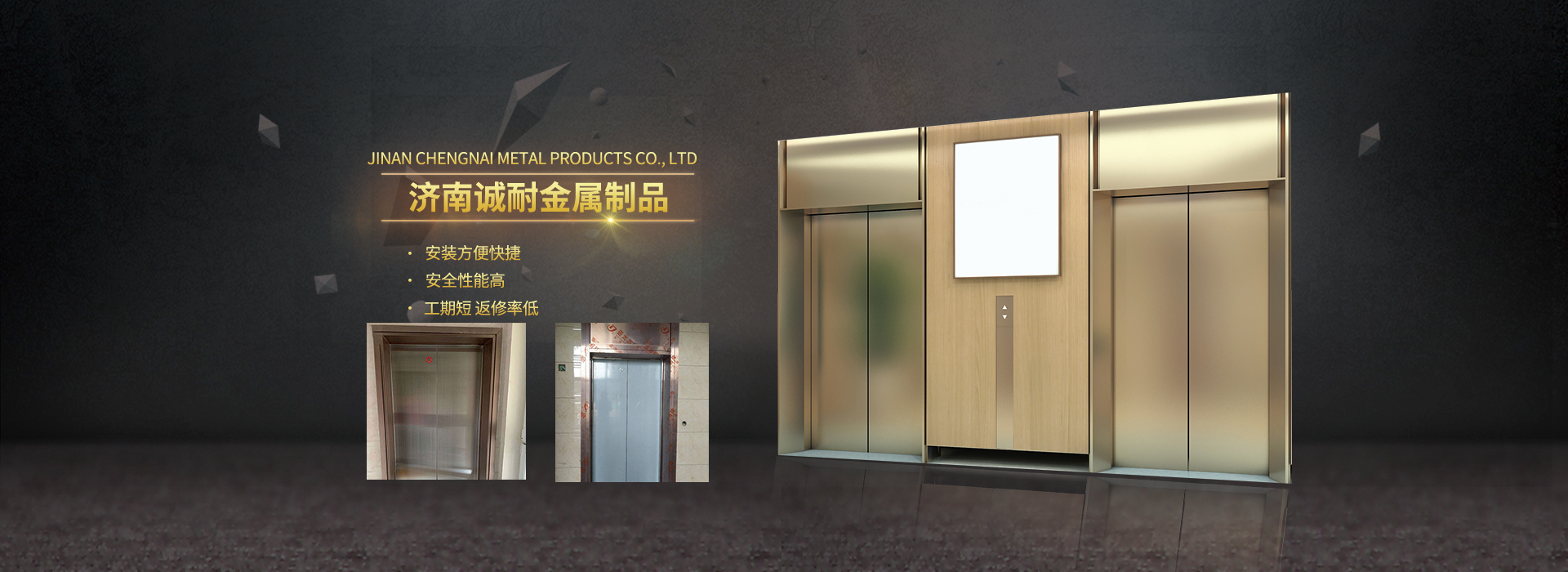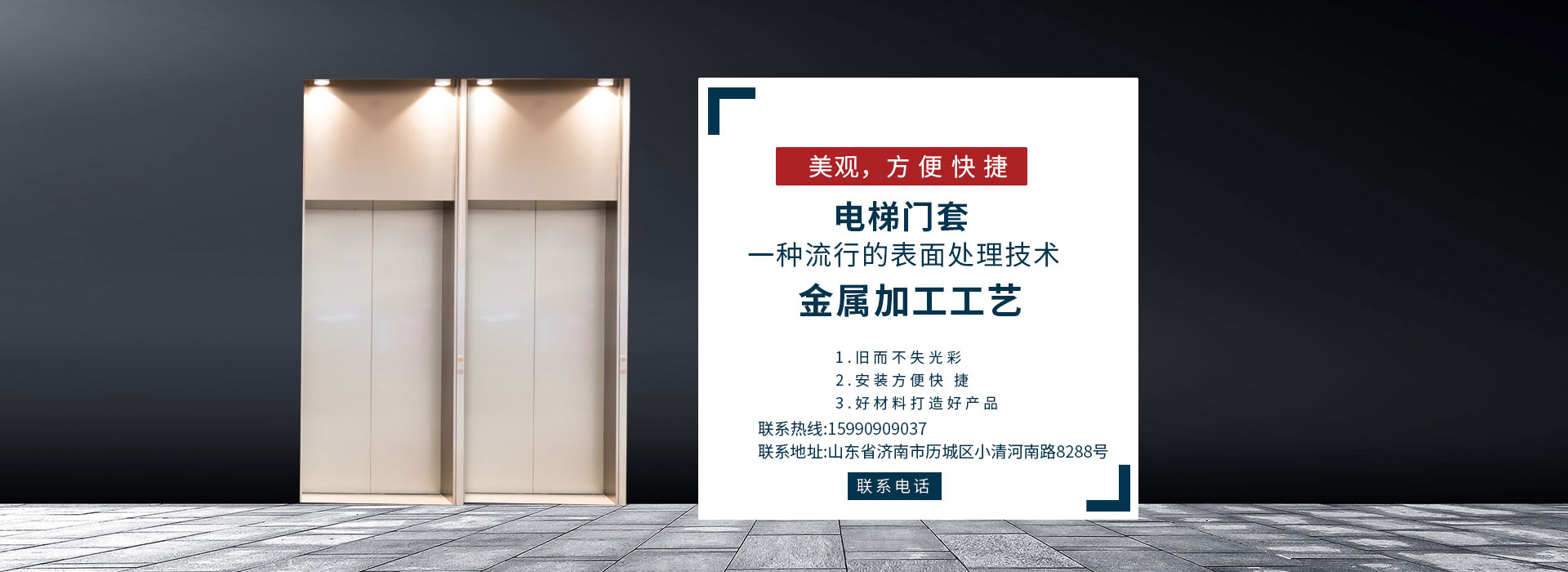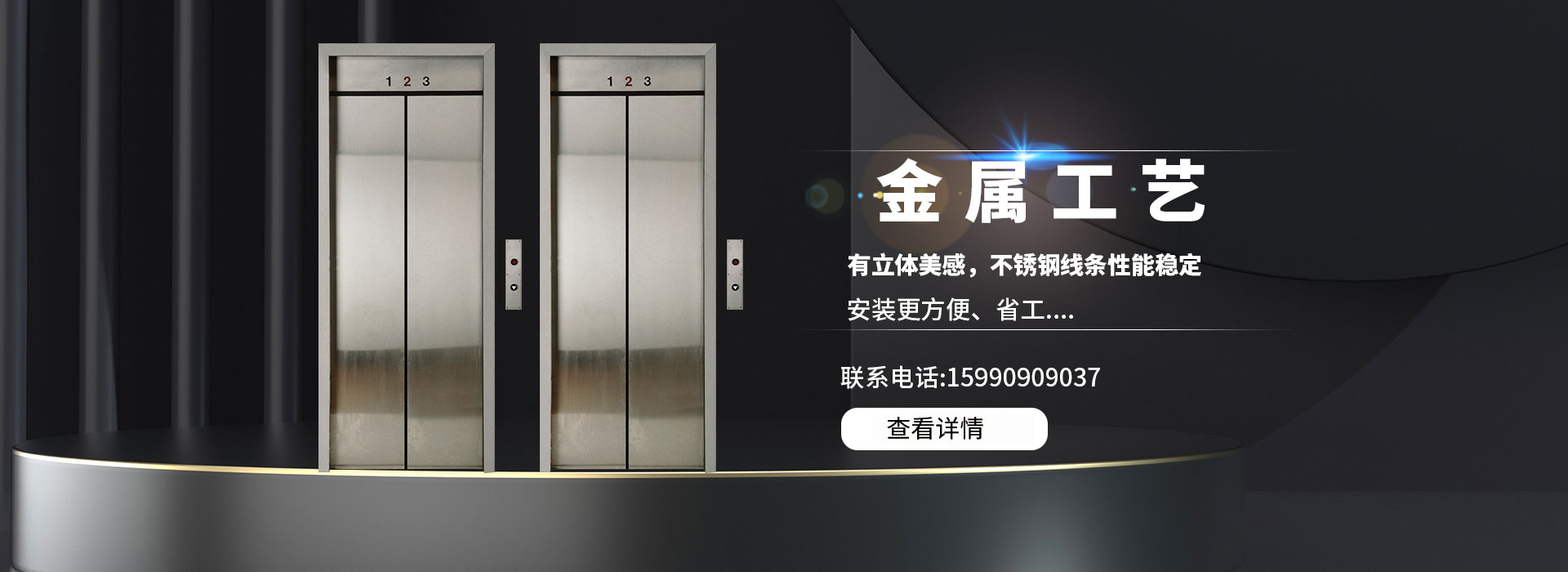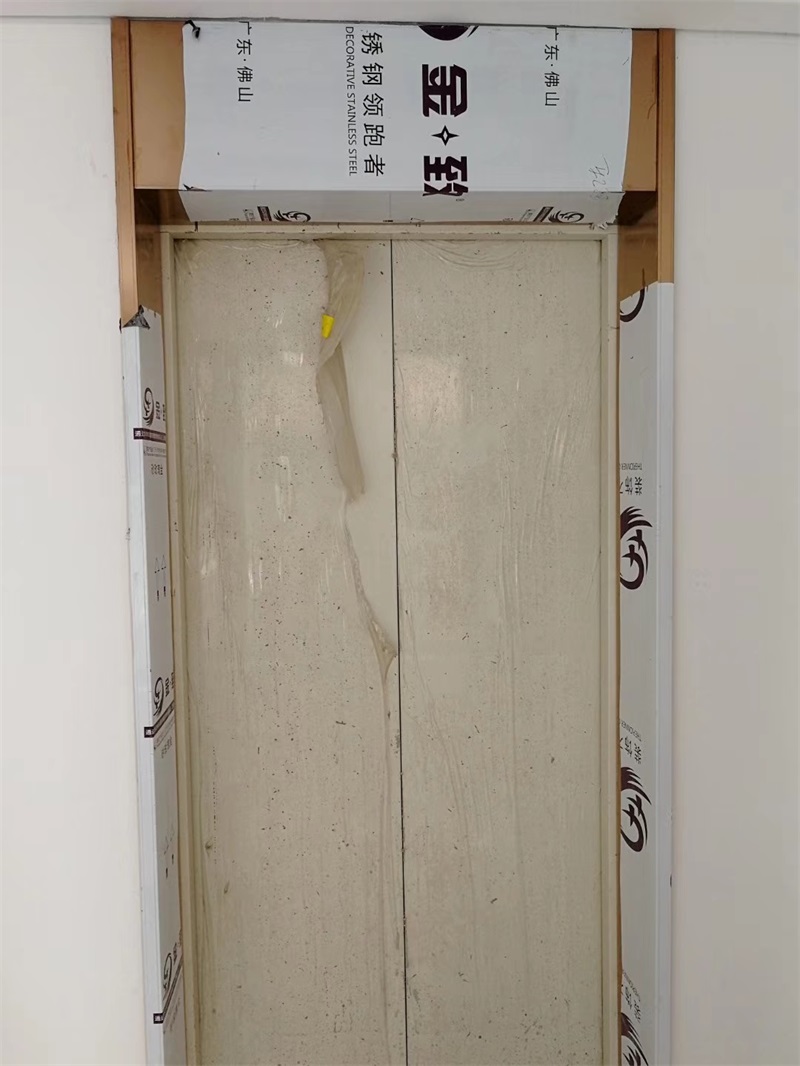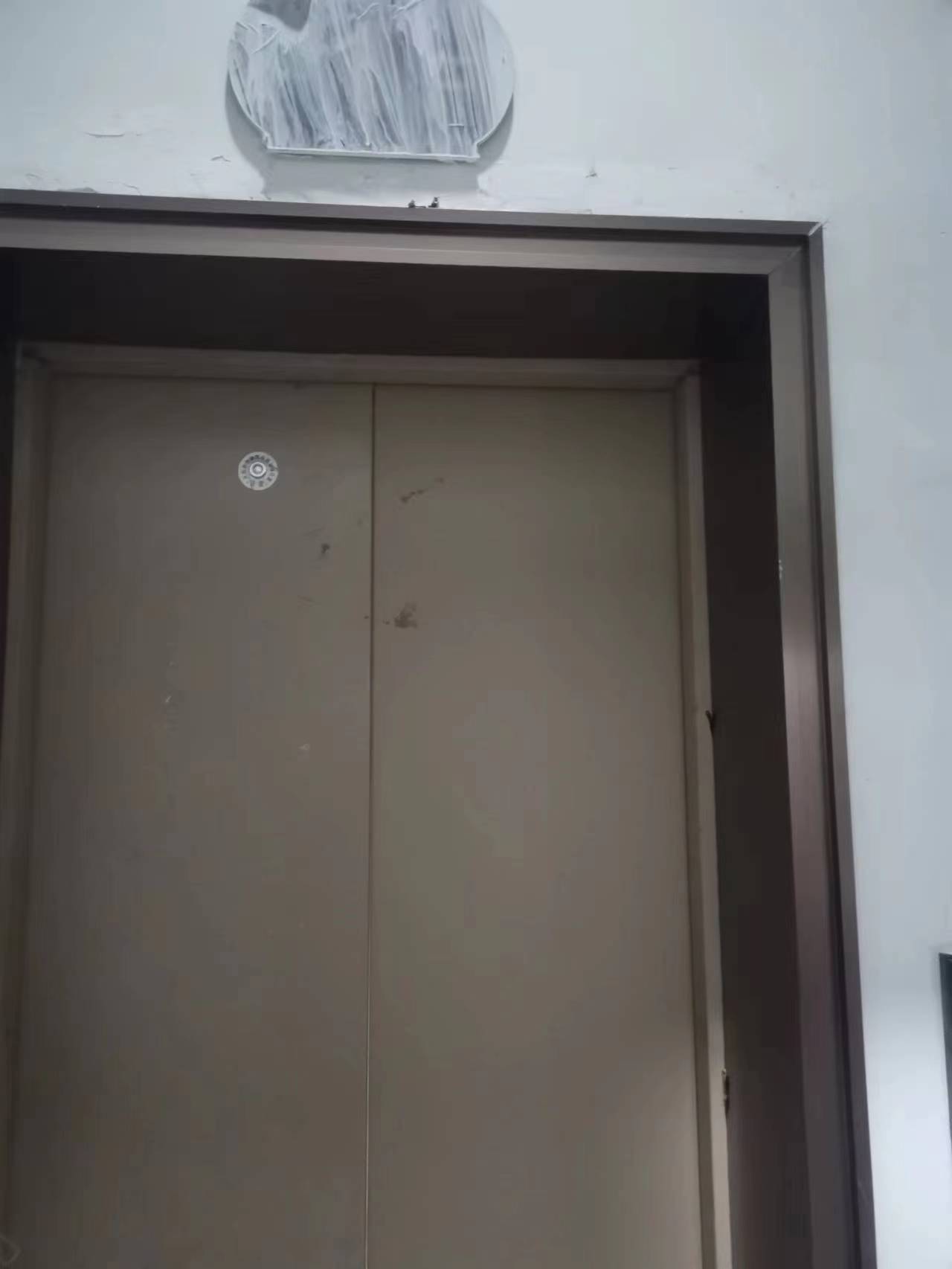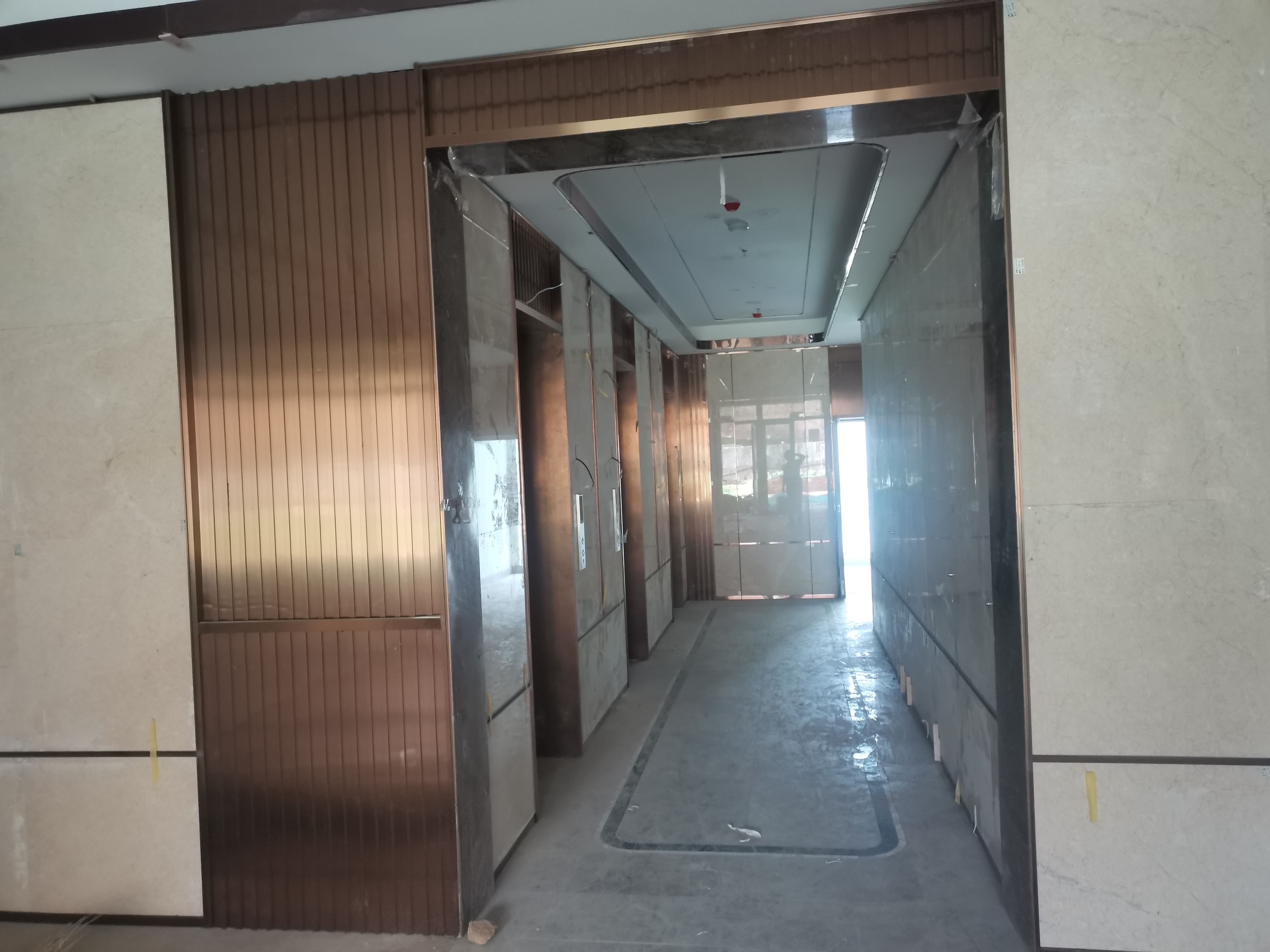電梯門套常用的不銹鋼有哪種以及區(qū)別
被用于電梯門套的不銹鋼主要有201不銹鋼與304不銹鋼以及復(fù)合不銹鋼三種。
There are mainly three types of stainless steel used for elevator door covers: 201 stainless steel, 304 stainless steel, and composite stainless steel.
主要區(qū)別:
Main differences:
成分:由于其成本不同,不同。
Ingredients: Due to their different costs and prices.
質(zhì)量好一些,同時(shí)相對(duì)較貴;
The quality is better, while the price is relatively expensive;
相對(duì)差一些,但有一定優(yōu)勢(shì);
Relatively poor, but with a certain advantage in price;
復(fù)合不銹鋼介于兩者之間。
Composite stainless steel is between the two.
組成:201組成為17Cr-4.5Ni-6Mn-N,是節(jié)Ni鋼種,301鋼的替代鋼。經(jīng)冷加工后具有磁性,用于鐵路車輛。
Composition: 201 is composed of 17Cr-4.5Ni-6Mn-N, which is a Ni steel grade and a substitute for 301 steel. After cold processing, it has magnetism and is used in railway vehicles.
304組成為18Cr-9Ni,是得到更廣泛應(yīng)用的不銹鋼耐熱鋼。用于食品生產(chǎn)設(shè)備昔通化工設(shè)備核能等。
304 is composed of 18Cr-9Ni and is the most widely used stainless steel heat-resistant steel. Used for food production equipment, chemical equipment, nuclear energy, etc.
復(fù)合不銹鋼為304不銹鋼薄板和鍍鋅板加熱到200℃,通過中間介質(zhì)高分子膜貼合而成,產(chǎn)品結(jié)構(gòu)緊密,具有減震降噪強(qiáng)度高等優(yōu)點(diǎn),由于厚度較厚,用于電梯轎廂廳門轎門等。
Composite stainless steel is made of 304 stainless steel sheet and galvanized sheet heated to 200 ℃, which are bonded through the intermediate medium polymer film. The product has a compact structure and high vibration and noise reduction strength. Due to its thick thickness, it is used for elevator car hall doors, etc.
201是含錳較高,表面很亮帶有暗黑的亮,含錳較高容易生銹。
201 has a high manganese content, with a bright surface with a dark luster, and is prone to rusting due to its high manganese content.
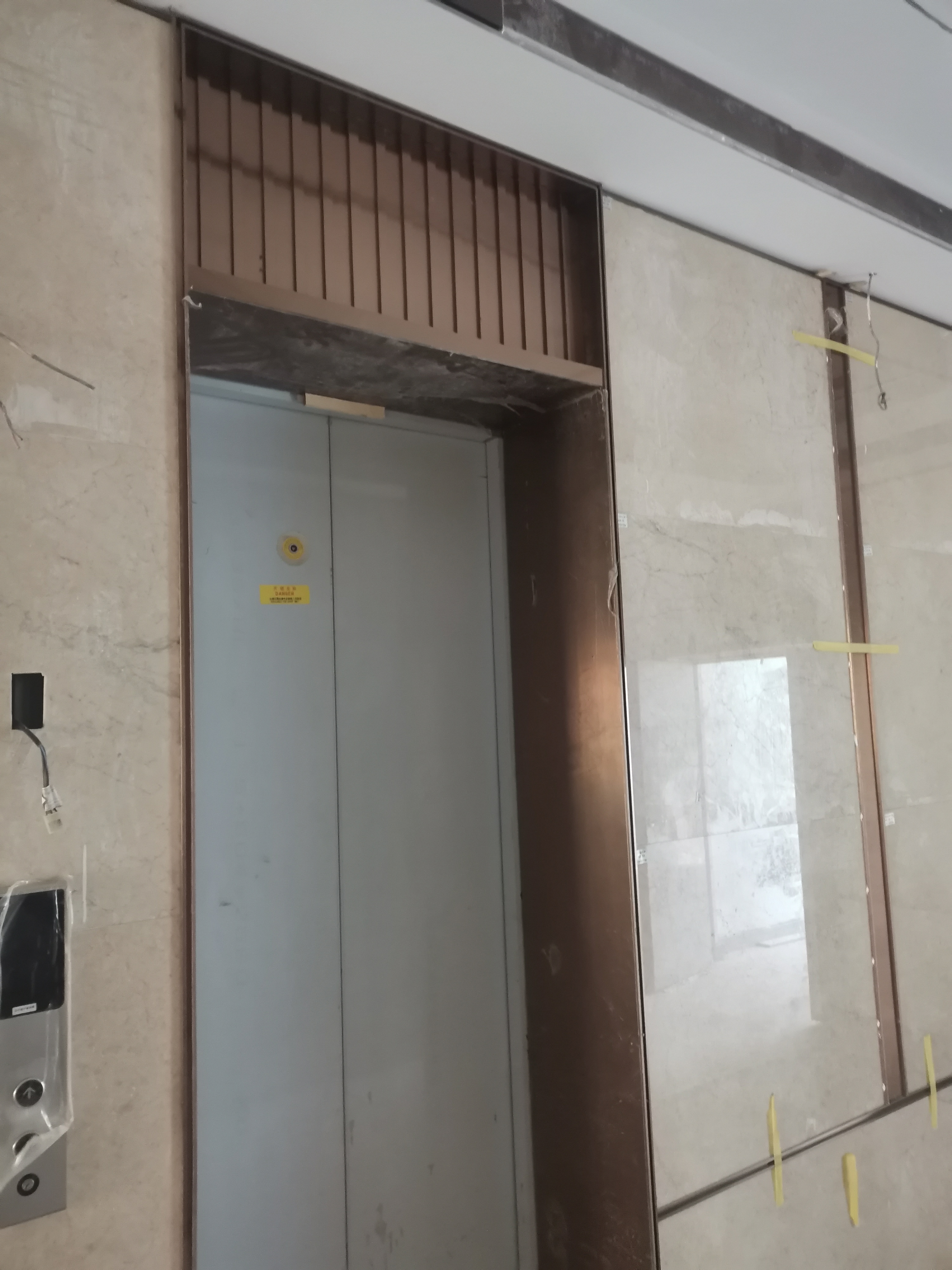

含鉻較多,表面呈現(xiàn)啞光,不生銹.兩種放在一起就有比較了。
Contains a lot of chromium, with a matte surface and no rusting. The two are compared when placed together.
更重要的就是耐腐蝕性能不同,201的耐腐蝕性能很差,所以就要便宜很多.又因?yàn)?01含鎳低,所以比304的低,于是耐腐蝕性能就不如304的了。
The most important thing is that the corrosion resistance is different. The corrosion resistance of 201 is very poor, so the price is much cheaper. Moreover, because 201 contains low nickel, the price is lower than 304, so the corrosion resistance is not as good as 304.
復(fù)合不銹鋼表面由304組成,表面具有304不銹鋼的特性。
The composite stainless steel surface is composed of 304 and has the characteristics of 304 stainless steel.
201不銹鋼在特定環(huán)境下會(huì)生銹,譬如說放置于鹽水浸泡就會(huì)生銹,但是日常環(huán)境下是極不易生銹的。不銹鋼材質(zhì)是因?yàn)楹墟囋?,才有不易生銹的能力,而相較于304不銹鋼來說,201不銹鋼中的鎳元素會(huì)更少,因此要比304不銹鋼更容易生銹。復(fù)合不銹鋼的表面材質(zhì)為304不銹鋼,而生銹主要表層氧化,因此復(fù)合不銹鋼抗銹蝕能力優(yōu)于201不銹鋼。
201 stainless steel can rust in specific environments, such as soaking in salt water, but it is extremely difficult to rust in daily environments. Stainless steel materials have the ability to resist rusting due to the presence of nickel, while compared to 304 stainless steel, 201 stainless steel has fewer nickel elements, making it easier to rust than 304 stainless steel. The surface material of composite stainless steel is 304 stainless steel, and rust is mainly caused by surface oxidation, so the corrosion resistance of composite stainless steel is better than that of 201 stainless steel.
不銹鋼具有抵抗大氣氧化的能力——即不銹性,同時(shí)也具有在含酸堿鹽的介質(zhì)中乃腐蝕的能力——即耐蝕性。但其抗腐蝕能力的大小是 隨其鋼質(zhì)本身化學(xué)組成加護(hù)狀態(tài)使用條件及環(huán)境介質(zhì)類型而改變的。如304鋼管,在干燥清潔的大氣中,有優(yōu)良的抗銹蝕能力,但將它移到海濱地區(qū),在含有大量鹽份的海霧中,很快就會(huì)生銹了;而316鋼管則表現(xiàn)良好。因此,不是任何一種不銹鋼,在任何環(huán)境下都能耐腐蝕不生銹的。
Stainless steel has the ability to resist atmospheric oxidation - i.e. rust resistance, and also has the ability to corrode in media containing acids, alkalis, and salts - i.e. corrosion resistance. However, its corrosion resistance varies depending on the chemical composition of the steel itself, the state of use, and the type of environmental medium. For example, 304 steel pipes have absolutely excellent rust resistance in a dry and clean atmosphere, but when moved to coastal areas, they quickly rust in sea mist containing a large amount of salt; However, 316 steel pipes performed well. Therefore, not any type of stainless steel can withstand corrosion and rust in any environment.
當(dāng)不銹鋼管表面出現(xiàn)褐色銹斑(點(diǎn))的時(shí)候,人們大感驚奇:認(rèn)為 “不銹鋼是不生銹的,生銹就不是不銹鋼了,可能是鋼質(zhì)出現(xiàn)了問題”。其實(shí),這是對(duì)不銹鋼缺乏了解的一種片面的錯(cuò)誤看法。不銹鋼在一定的條件下也會(huì)生銹的。
When brown rust spots (spots) appear on the surface of stainless steel pipes, people are greatly surprised: they believe that "stainless steel does not rust, rust is not stainless steel, it may be a problem with the steel quality". In fact, this is a one-sided misconception about a lack of understanding of stainless steel. Stainless steel can also rust under certain conditions.
本文的精彩內(nèi)容由德州電梯不銹鋼包邊提供知識(shí)提供,本網(wǎng)站還有很多的精彩內(nèi)容,更多的內(nèi)容您可以點(diǎn)擊進(jìn)入:http://vgjf.cn我們有專門的客服為您解答問題
The exciting content of this article is provided by the knowledge provided by Texas Elevator Stainless Steel Edge. There are also many exciting content on this website, and you can click to enter more content: http://vgjf.cn We have dedicated customer service to answer your questions

